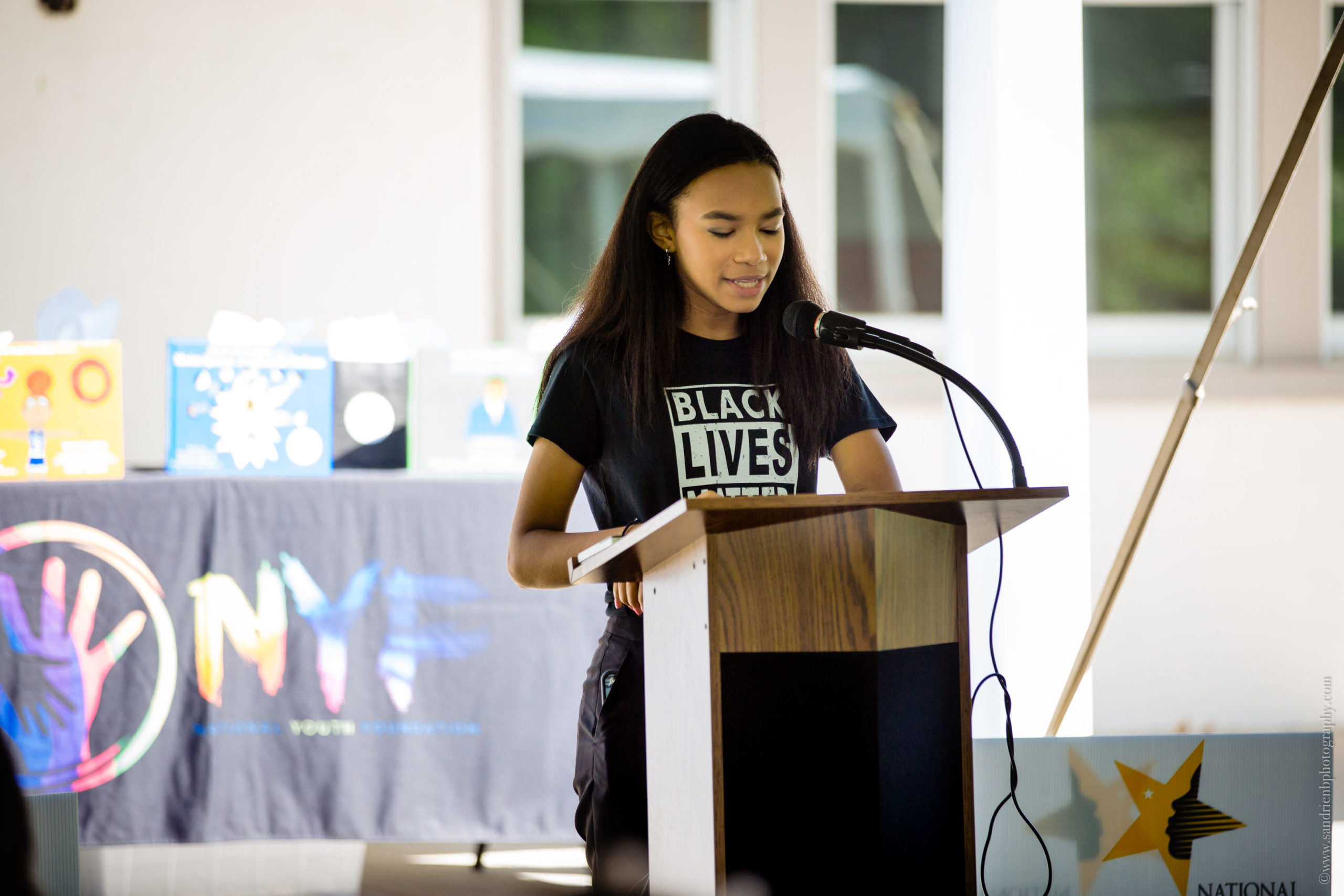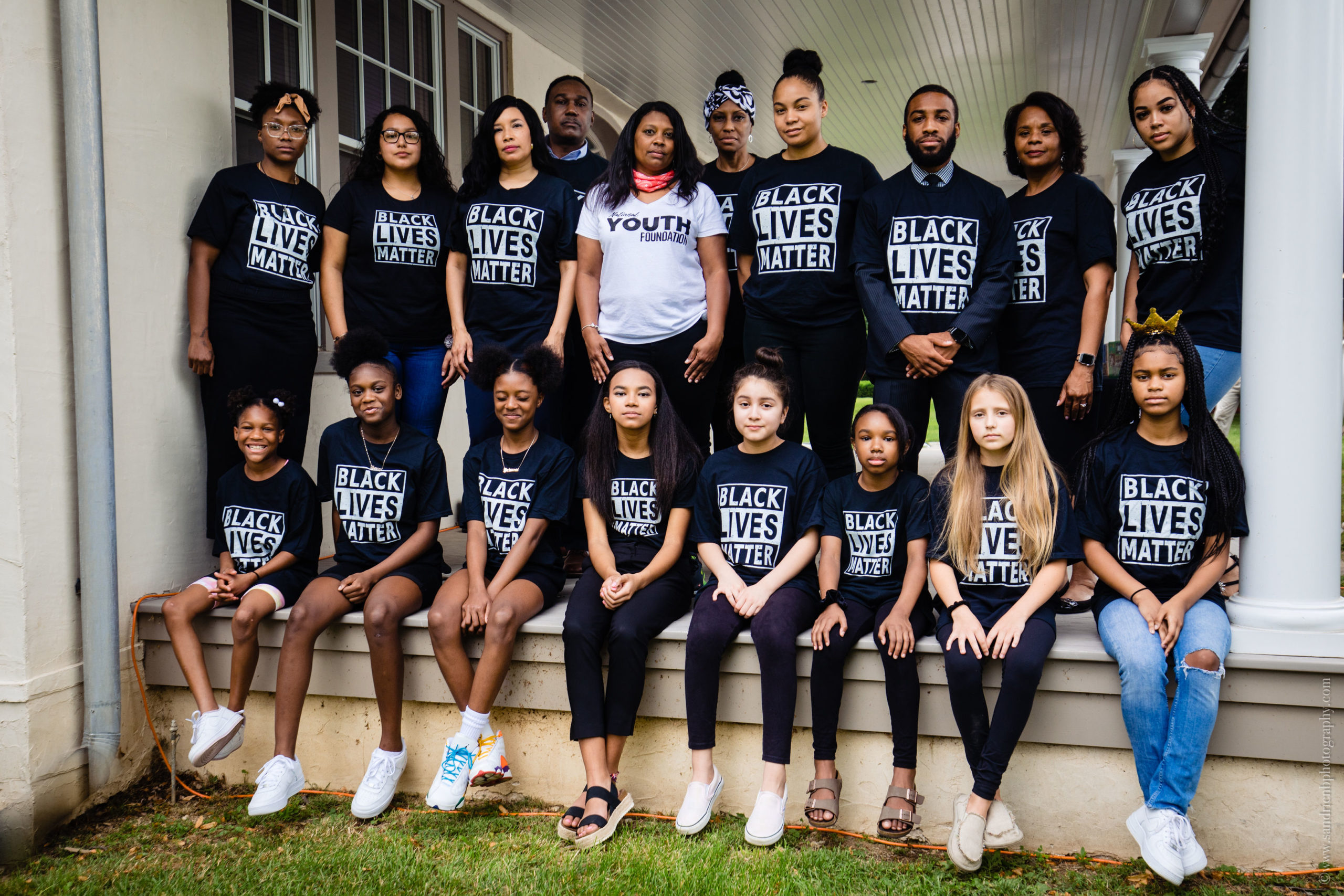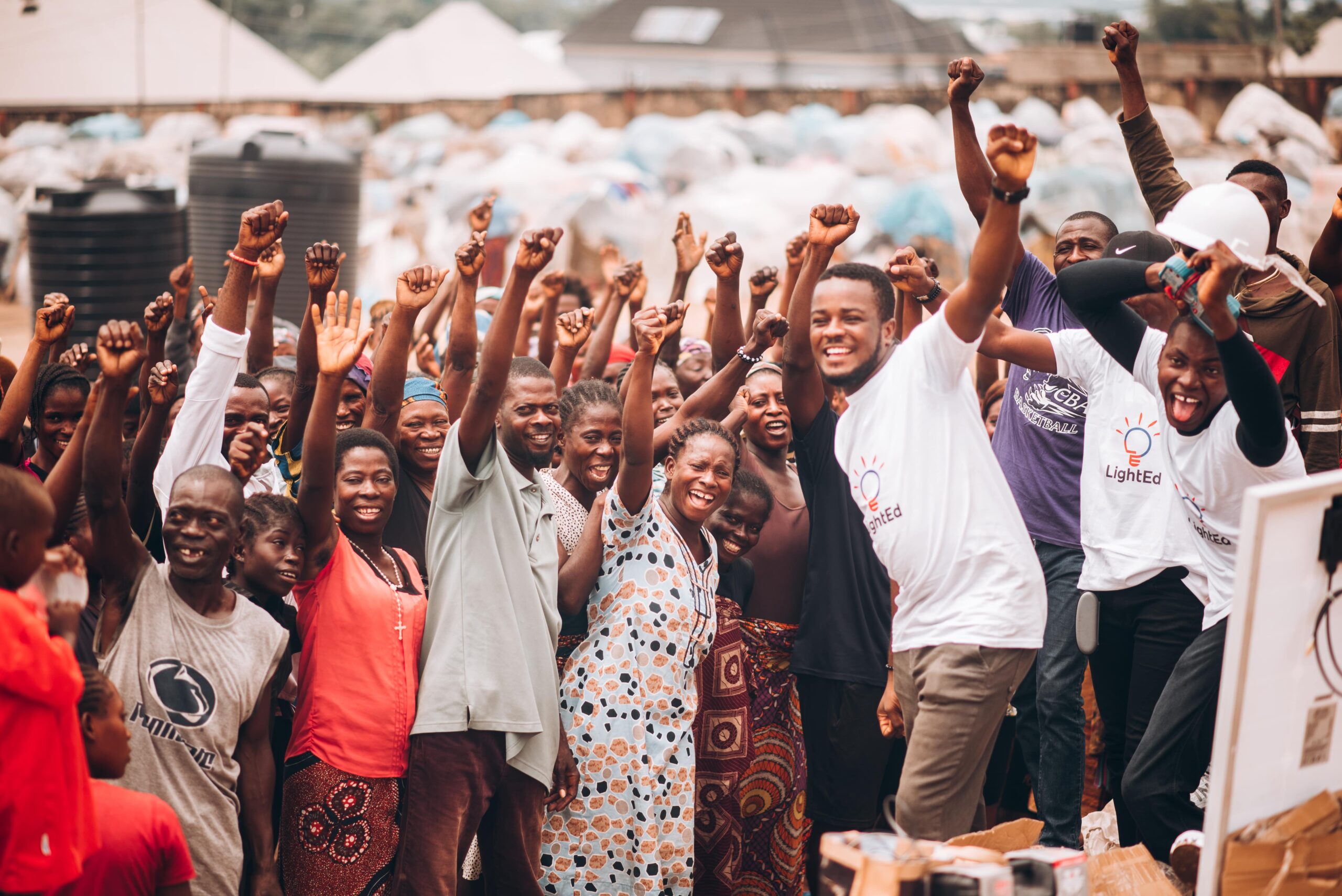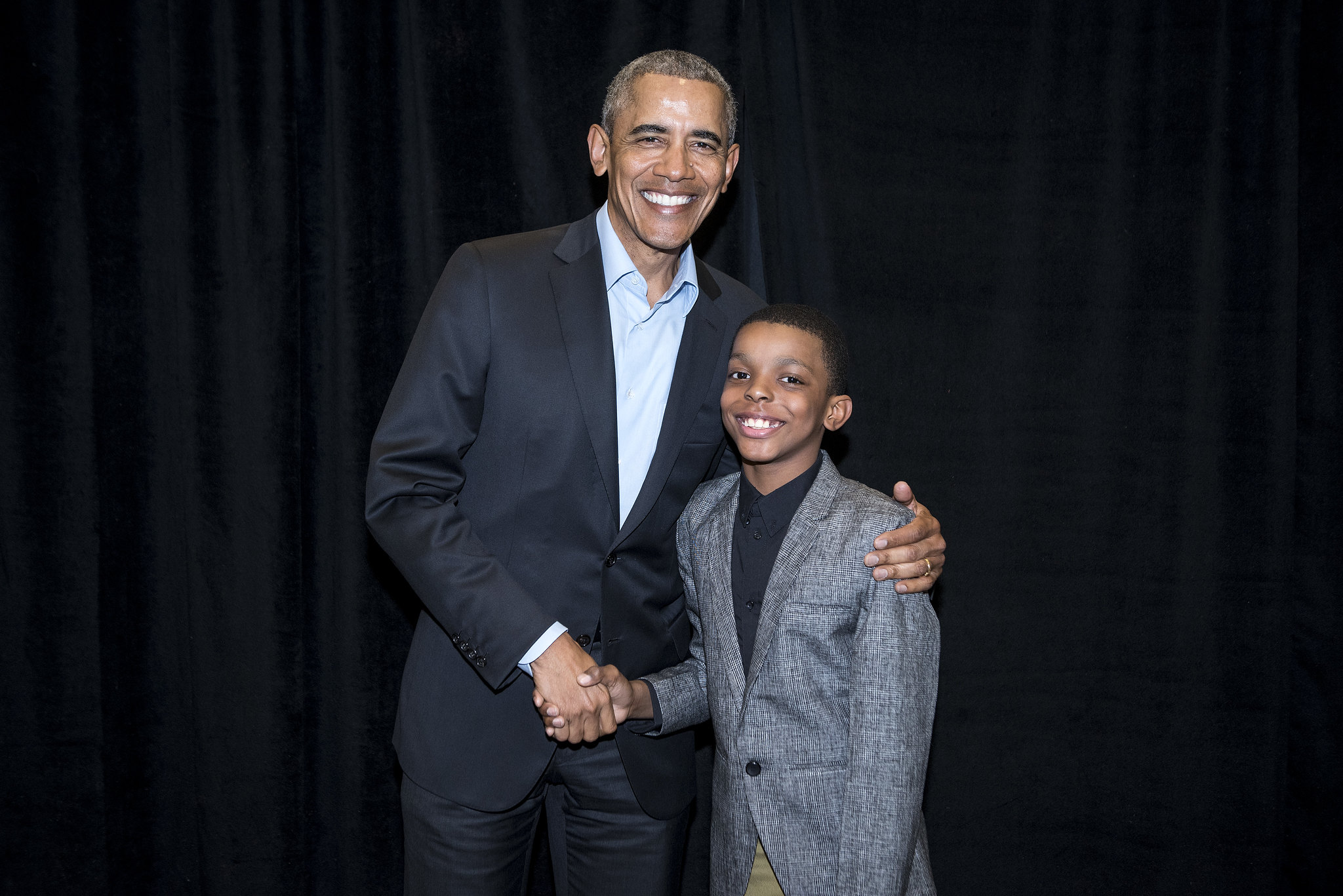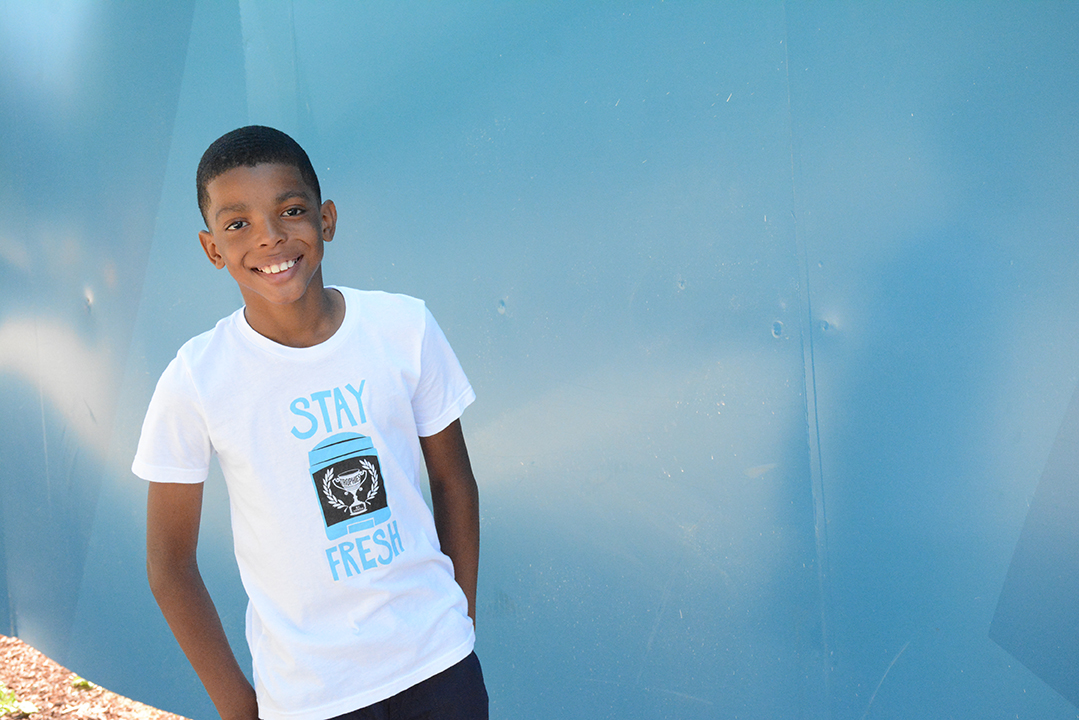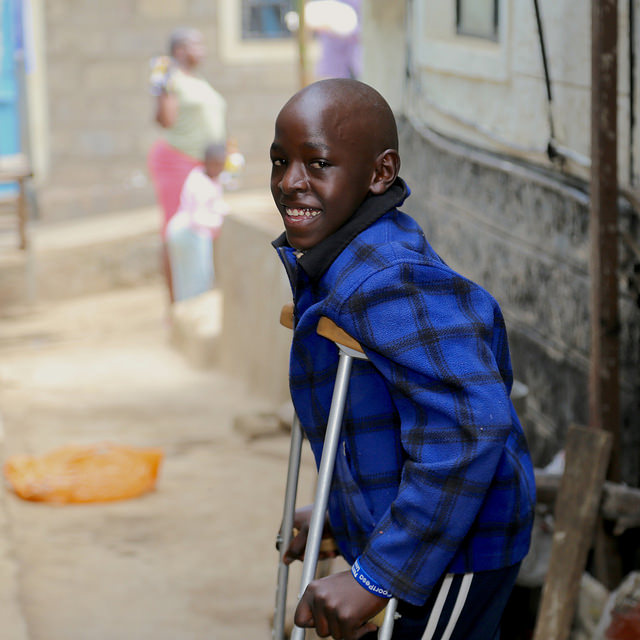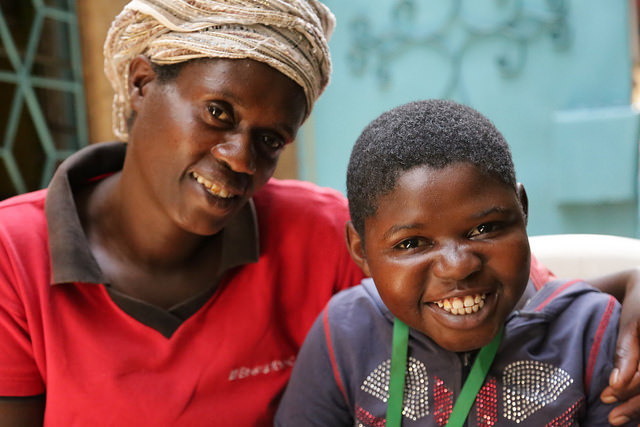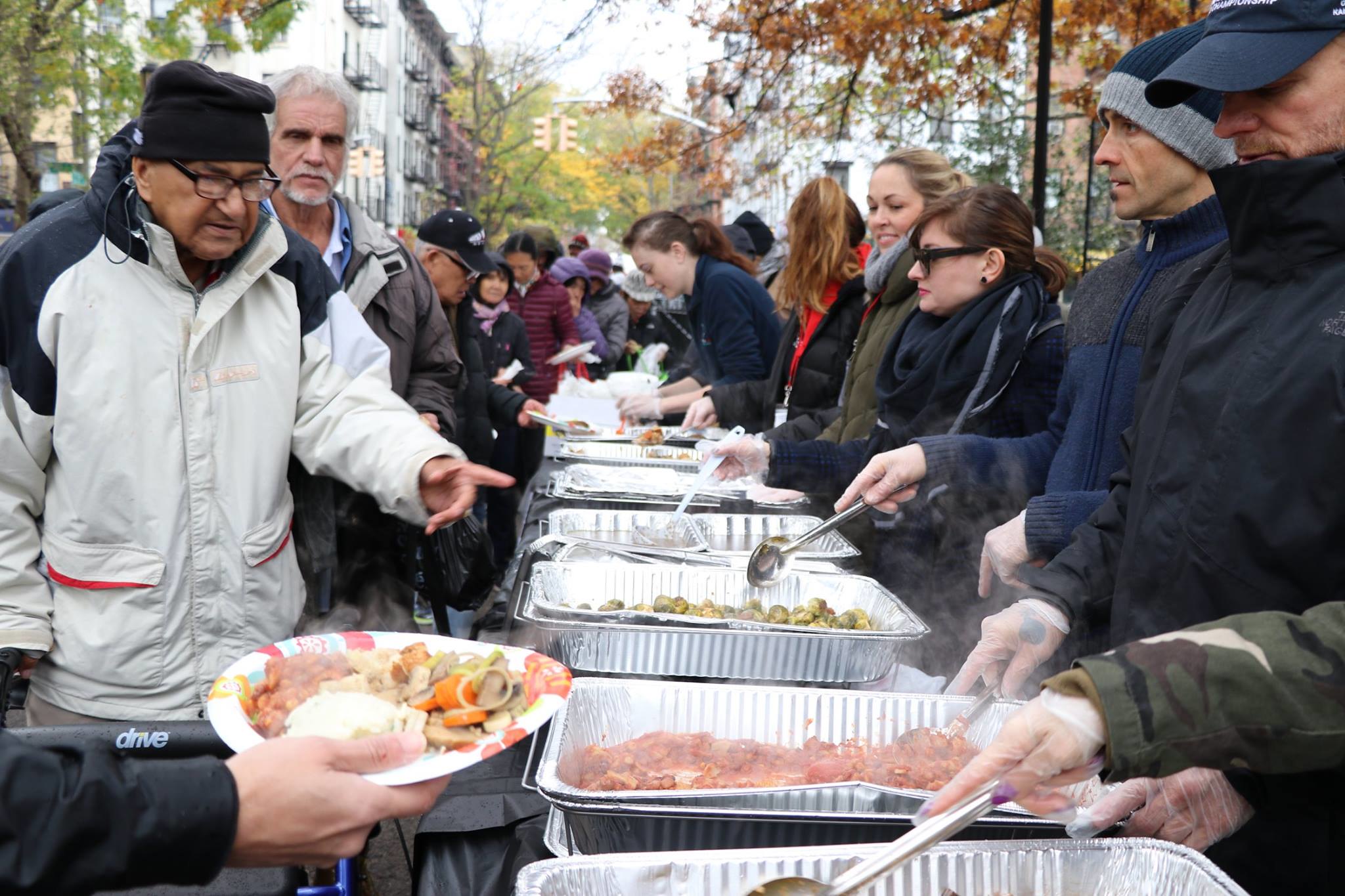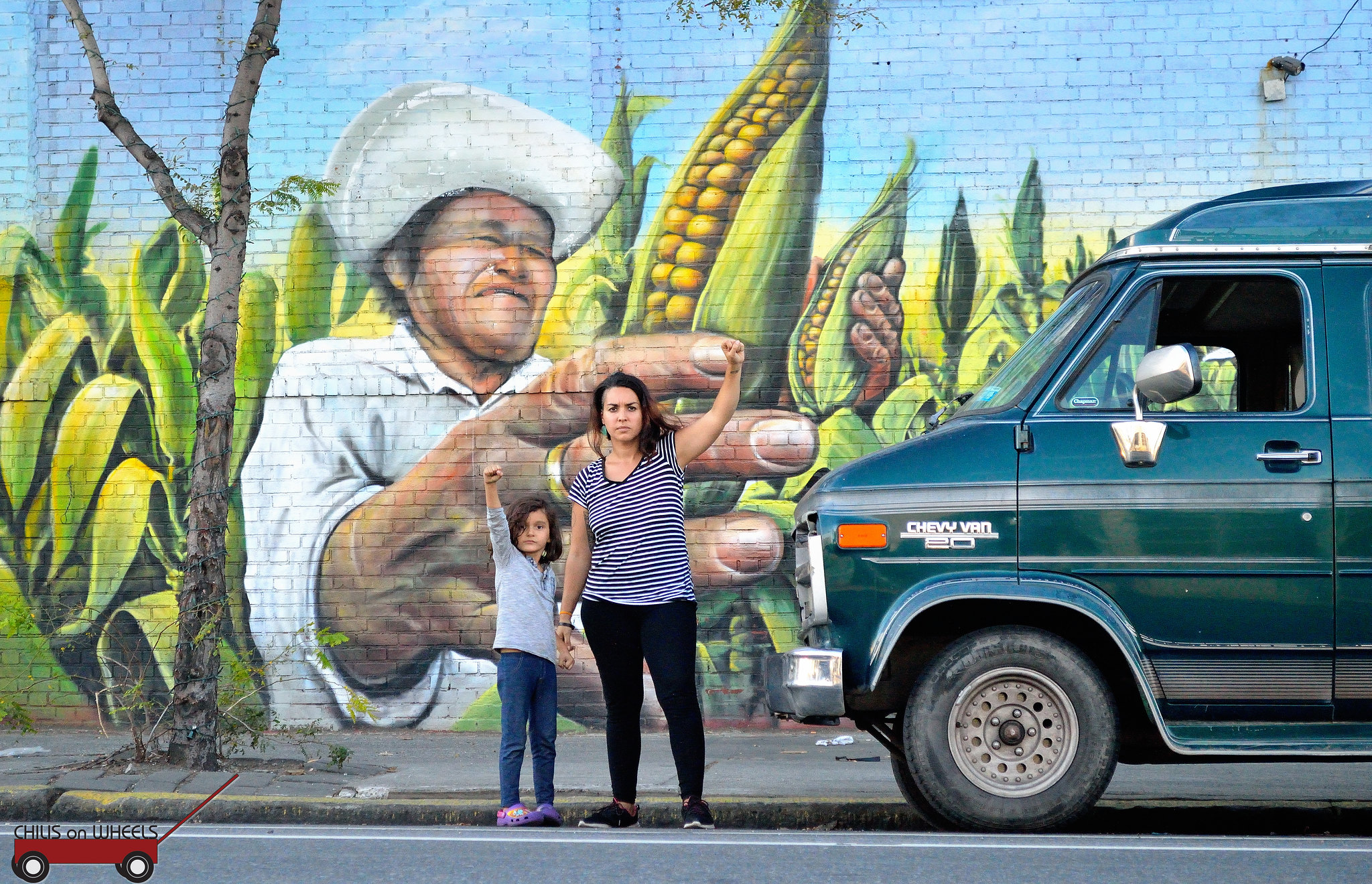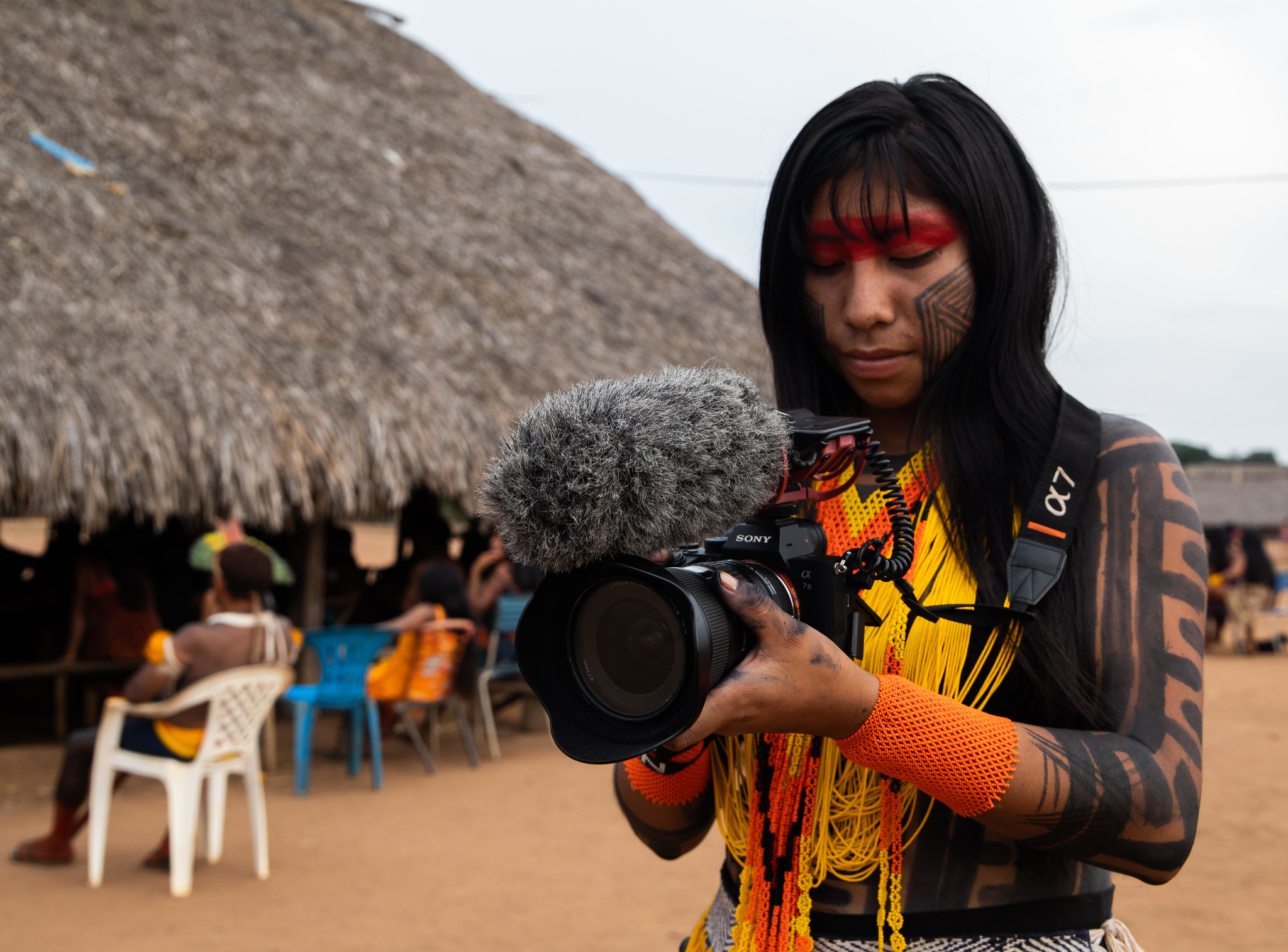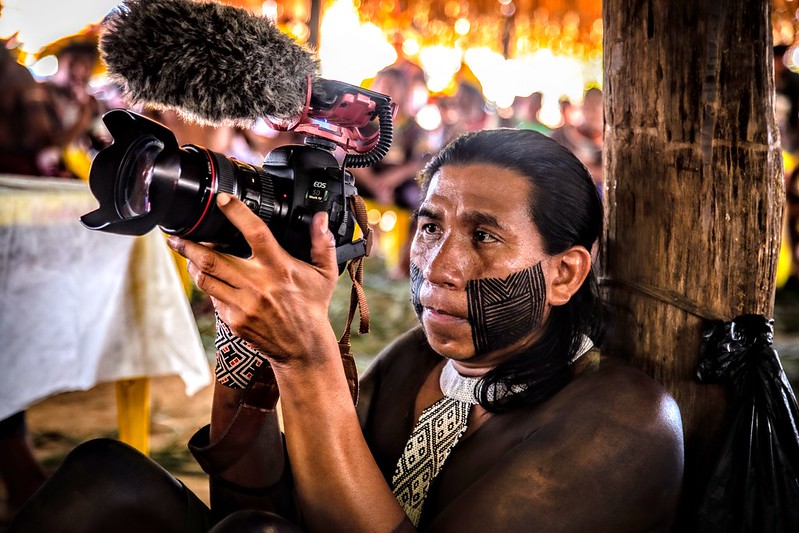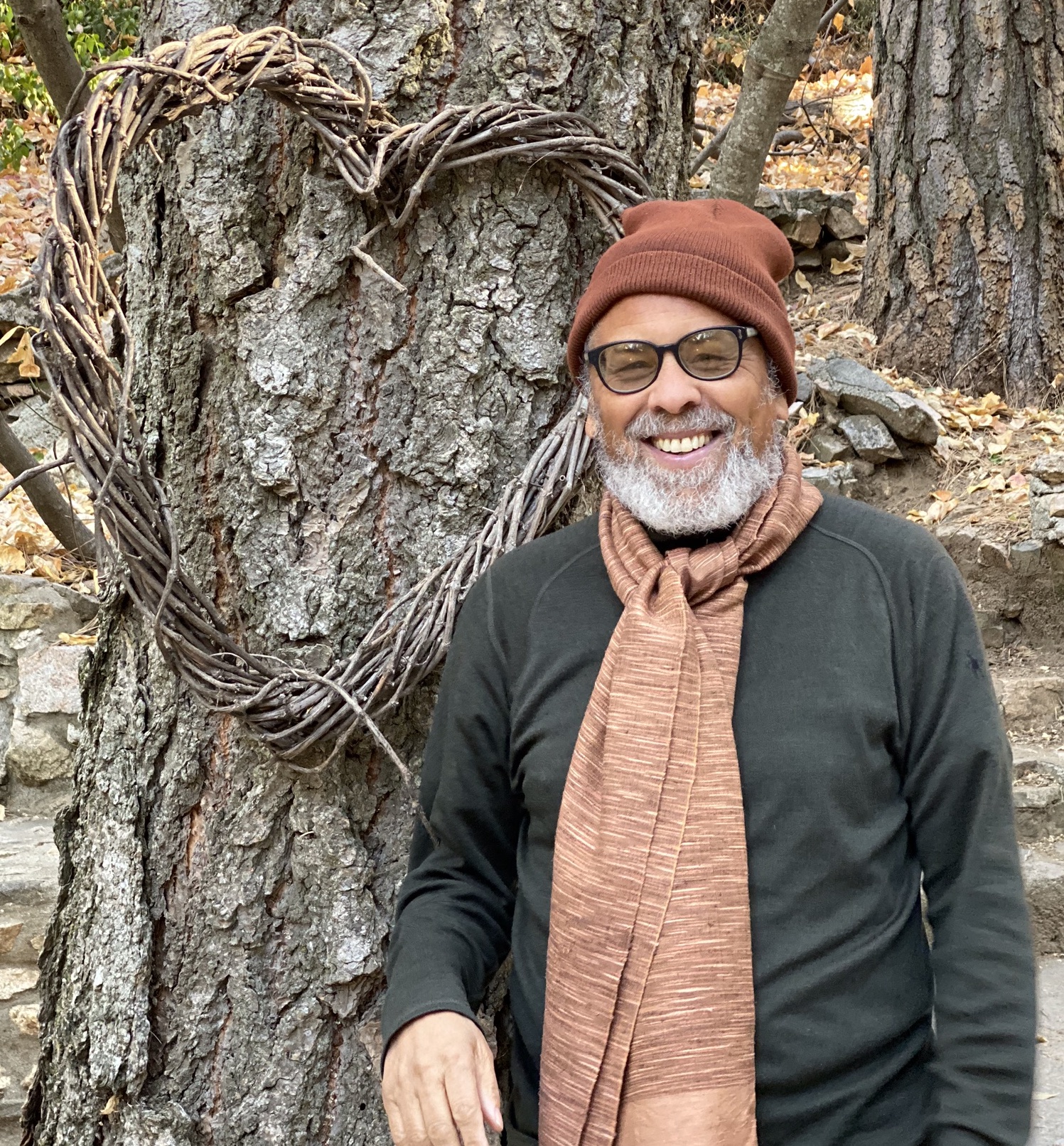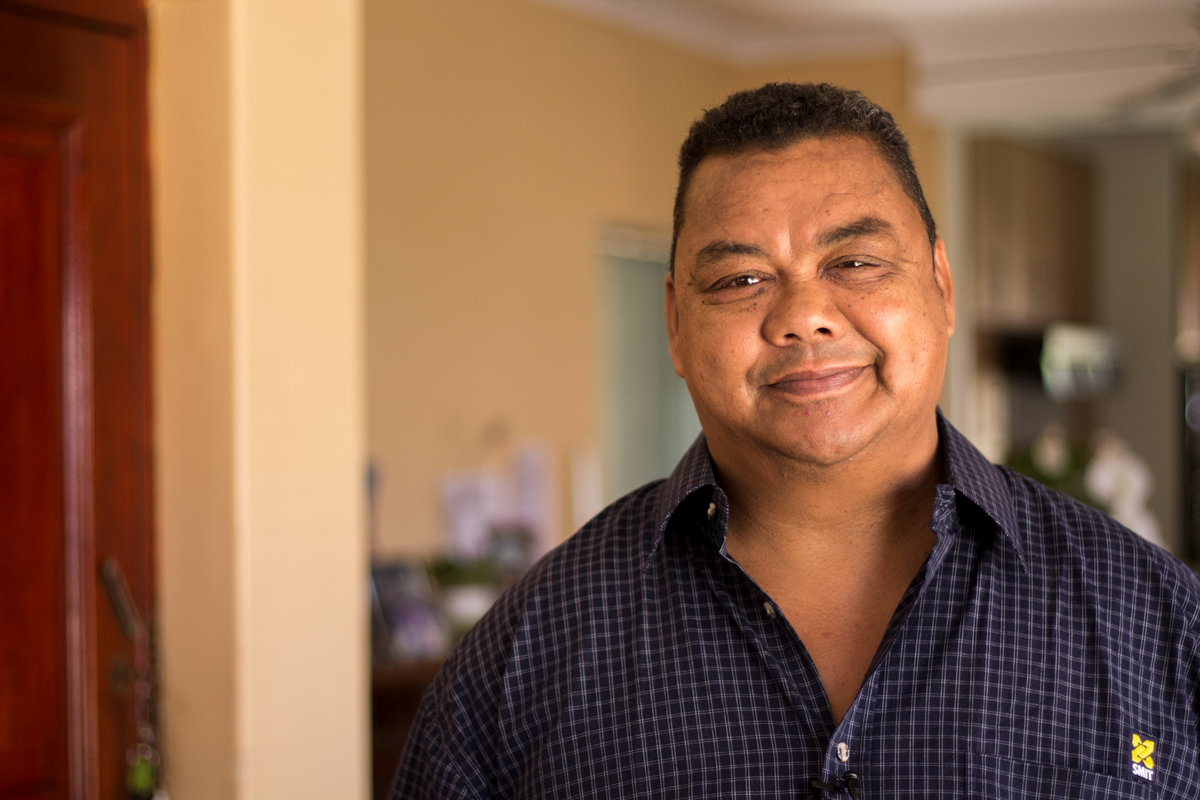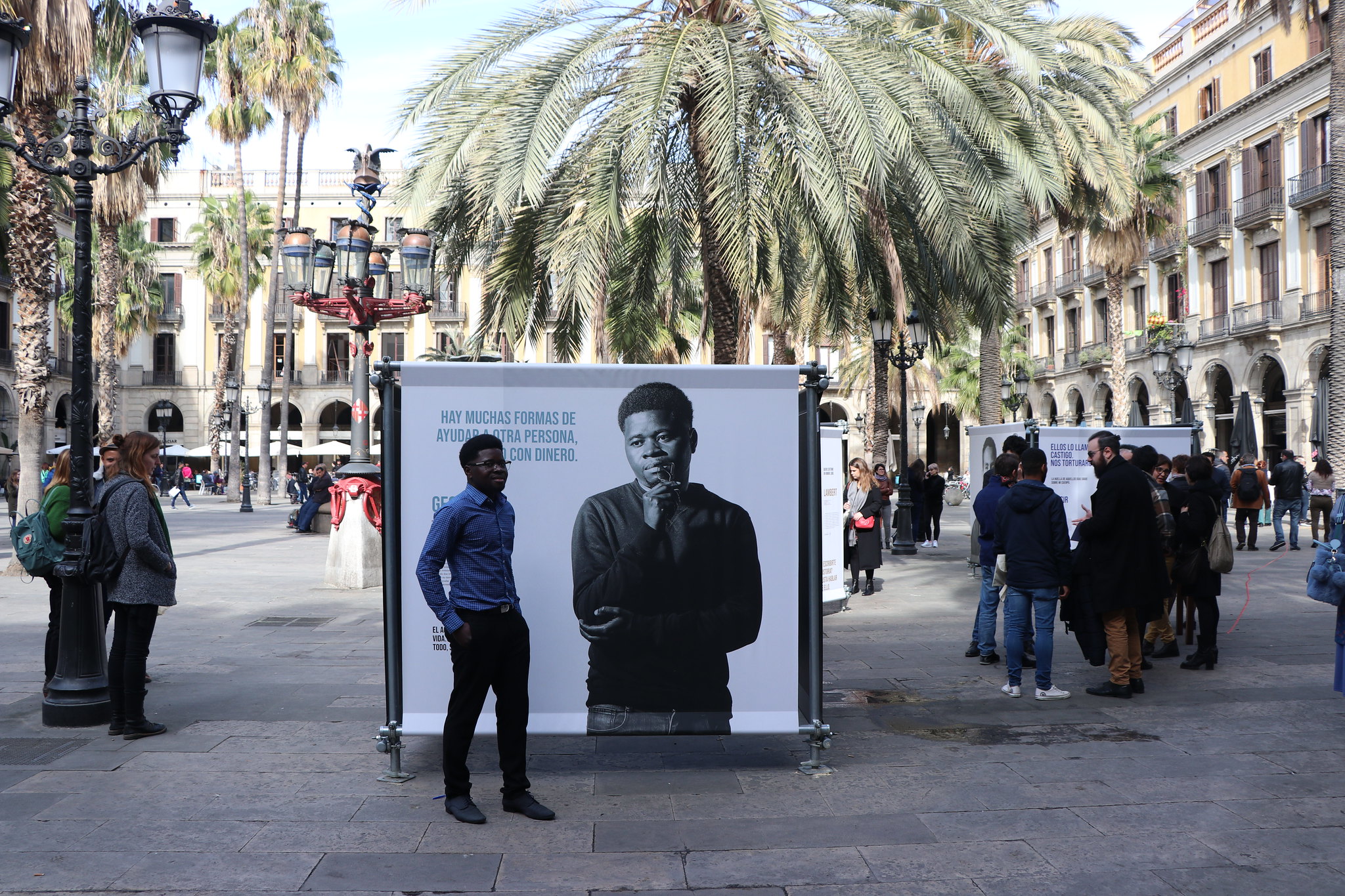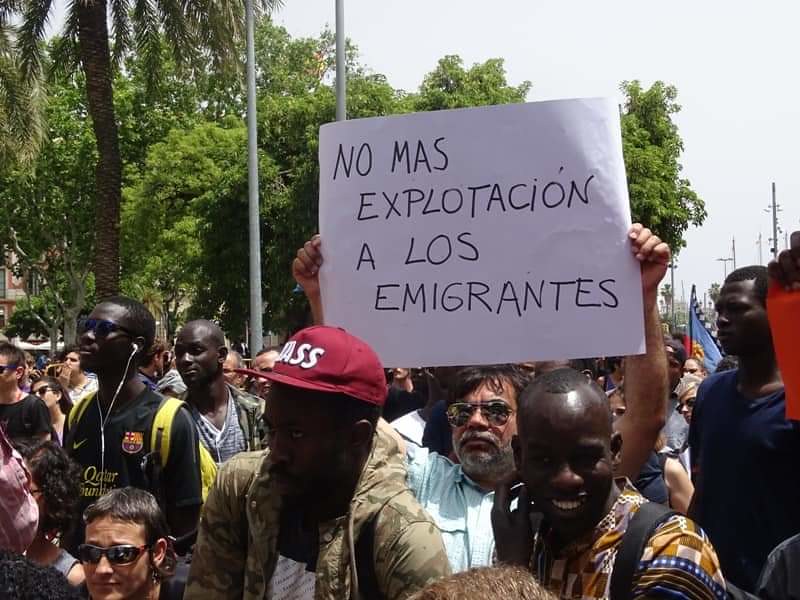Our Work in
Human Rights & Dignity
Isabella Hanson
Isabella Hanson received her first Pollination Project grant for her work in 2015 which focused on empowering girls when she was only nine-years-old .
Then in 2020, at the age of 14, Isabella once again looked to empower and amplify the voices of youth, only this time it was with the creation of “I Matter”, an international poetry and art competition focused on why Black Lives Matter.
With over 650 submissions from 42 US states and 30+ countries, the competition was a tremendous success.
Now, at 17, despite the fact that Isabella’s promotions are often blocked on social media, she’s determined to grow the competition in the hopes of uplifting the voices of even more youth.
In 2023 she made the Teen Vogue “21 Under 21” list of Revolutionary Youth. Every year, Teen Vogue presents “21 Under 21”, a list of changemakers, influencers, activists, and artists who have made a substantial impact in both their communities and the world.
She’s also part of Lady Gaga’s Board of Advisors for the Born This Way Foundation!
Stanley Anigbogu
The LightEd Peace Project is an initiative focused on enhancing the lives of refugees and underserved communities through access to renewable energy. This project is particularly active in Nigeria’s internally displaced persons (IDP) camps. The core components of the project include Solar Charging Stations, Distribution of Solar Lamps, and Empowering Communities. Access to electricity is often a catalyst for further development, enabling educational opportunities, small-scale businesses, and better living conditions.
They received a grant to support the LightEd for peace project. Here’s their impact so far:
- Direct access to energy for 5,000+ people.
- Lighting 2 entire IDP camps with street lights.
- 400 solar lamps distributed.
- 7 schools illuminated (1,478 kids)
Jahkil Jackson
Project I Am, founded in 2016 by then-8-year-old Jahkil Jackson, received a TPP grant in 2018 to distribute over 5,000 essential toiletries and personal health supplies to homeless people in the City of Chicago and beyond. These supplies, bundled into what Jahkil calls Blessing Bags, include hygiene wipes, hand sanitizer, Band-Aids, antiseptic, socks, bottled water, toothbrushes, and toothpaste. He distributes these bags to those temporarily residing at shelters and he also does hand-to-hand distribution to homeless people who are not served by shelters.
Since he received the grant, he received a Philanthropy award from Illinois Action for Children, a Humanitarian award from Forever Hope Academy, the Illinois Difference Maker award, the Chicago Tiny House Humanitarian award, and AFP Youth Philanthropist award.
His work was also covered in Forbes magazine, Highlights magazine, Scholastic magazine, the New York Times, as well as the Steve Harvey show, WGN, NBC, ABC, HLN and the Today show.
Today, Project I Am:
- Raised over $400,000 for those in need.
- Touched 100,000 men, women and children across the world
- Has over 1,000 volunteers
- Has organized distribution to those in need in Chicago, Los Angeles, Oklahoma, Washington D.C., Atlanta, Virginia, Idaho and more.
Jahkil has also provided items of support to orphans in Mbabane, Swaziland and Ghana as well as volcano victims in Guatemala, and hurricane survivors in the Bahamas, Florida, Houston and Puerto Rico.
Maria Omare
The Action Foundation (TAF) works to support children and young people with disabilities in low-resource communities, enabling them to thrive. Founded by Maria Omare, TAF’s mission is to build inclusive and resilient communities where children, women, and girls with disabilities can thrive. We improve the quality of life for these individuals through programs covering their entire lifecycle, from the early years to adolescence and adulthood.
In 2018, with the support of caregivers, friends, and a TPP grant, TAF established the Action Foundation Therapy, Training, and Resource Centre (TAF Hub). Located in the heart of Bombolulu Village, Kibera, the Hub provides essential rehabilitative services, learning, and training opportunities for children, women, and girls with disabilities, as well as their caregivers. It hosts a Therapy Center, Community Library, Workshop, and STEM Center.
Since then, TAF has expanded, operating three additional Therapy Centers in Kawangware, Mukuru, and Mathare Informal Settlements in Nairobi.
TAF has also developed three programs:
- Tunza (Nurturing Care) Program: Supporting the holistic health, growth, and development of children with disabilities.
- Ibuka (Women and Girls Empowerment): Enhancing the livelihoods, resilience, and dignity of women and girls with disabilities.
- Somesha (Inclusive Education): Enhancing teacher preparedness, educational assessments, and access to digital technologies to promote inclusive education.
Michelle Carrera
Chilis on Wheels provides vegan chilis to people on the streets in need of a warm meal. The program started in November 2014 as Michelle Carrera and her son Ollie searched for a soup kitchen in which to volunteer. As a vegan family, they could not find a soup kitchen that accommodated their ethical principles, so she took it upon herself to cook chilis and distribute them. Moved by the experience and face to face with the look of hunger and homelessness, she and her son have returned and committed themselves to providing greater help. She founded Chilis on Wheels and TPP supported her with an initial grant in 2015.
In 2018, she received an Impact Grant for Chilis on Wheels for its Puerto Rico chapter. She opened a vegan community center in San Juan that serves food to vulnerable communities, as well as hosting workshops, trainings, meetings, documentary screenings, and community nights to make veganism accessible to everyone. In the immediate aftermath of Hurricane Maria, CoW PR served 15,000 vegan meals along with bags of groceries, water filters, solar lanterns, and other personal products. To date, Chilli On Wheels has:
- 8 organizations (Bay Area, Columbus, Honolulu, Maui, New England, New York City, Puerto Rico, Washington DC)
Abdel Mandili
People’s Planet Project is a film initiative responding to the accelerating deforestation rates and Indigenous livelihood destruction. While working on a variety of films regarding Indigenous forest preservation, the founders realized little was being done to improve the self determination of Indigenous communities and their abilities to protect their forests. People’s Planet Project is an organization that promotes social activism through the use of storytelling and GeoStory Camps, a program that seeks to fight deforestation by uplifting Indigenous voices.
In order to bring the GeoStory Camp to life, People’s Planet Project applied for a seed grant from The Pollination Project. The first GeoStory Camp took place in the Xingu Amazon Basin with the Kīsêdjê and Yudjá Indigenous communities. This week-long pilot program faced its share of obstacles from logistical concerns about how to order equipment as Brazil has specific policies about online purchases to having to quickly rewrite a part of the curriculum to accommodate the skill levels and learning curve as participants learned how to use laptops, cameras, drones, and even phones to film. In the end, the week was a success and the equipment was left with the young people.
Today People’s Planet Project is a global movement with the aim to assist Indigenous communities in their battle against deforestation through the use of video technology and geospatial data.
- 31 Indigenous community members trained in filmmaking
- 24 Indigenous community members trained in geospatial mapping
- 3 Indigenous-led working groups focused around climate action and systemic justice
- 3,360,000 Hectares of ancestral forest will be preserved through court cases that fight for environmental rights
Peter Harris
See You: Faces of the Black Man of Happiness is a publication and public awareness/Social Media campaign/exhibition curated in Los Angeles by American Book Award author Peter J. Harris, founder of Black Man of Happiness Project. See You features ‘Legacy’ photos — historical images of Black men and boys ‘emanating a sense of joy’ — and provides an unprecedented, life-affirming oasis that traces the DNA of joy for Black men and boys during a social climate that too often places those men and boys in the cross-hairs of danger and death. With See You, Harris celebrates the humanity of Black men and boys from a refreshing new angle that boldly asks ‘What is a happy Black Man?’ See You answers that question and contributes to a re-charged emotional ecology and social atmosphere infused with beautiful art reflecting the ongoing, dignified and intimate resistance of Black males to their dehumanization.
The TPP grant in 2018 helped
- to extend the tenure of the Research Librarian Helen Cate, who coined the brilliant phrase ‘emanating a sense of joy’;
- to secure reproduction rights for an initial pool of selected Legacy Images;
- to design the look for the public awareness/Social Media campaign.
Paul Talliard
Paul received a TPP grant in 2015. The model Paul Talliard created was unique: businesses donate their unwanted goods to Hands of Honour to be upcycled, which creates jobs and skill-building opportunities for the boys and men Hands of Honour employs.
Paul used some of that income to create learning resources for local school children and provided many other opportunities for those he served to volunteer in their communities.
To date, this work has saved 369 tons of waste from entering a landfill, employed 14 boys and men, can call up to 50 members for a volunteer project, and distributed 80 Early Childhood Development Classroom on Wheels units to under-resourced children’s centers.
Even while growing Hands of Honour, Paul always found time to give back to The Pollination Project’s global family. He served as a grant advisor and mentor to new changemakers beginning in 2016, donating countless hours to helping other would-be visionaries on their own unique path to creating a kinder, more compassionate world.
Even though Paul passed in 2021, Hands Of Honor still serves as a significant inspiration for many. Several men who have been part of the Hands of Honour Upcycling Centre have moved on to lead lives filled with meaningful goals and clear vision.
George Reginald Freeman
“My government tried to kill me for being gay. It only made me want to work harder for equal rights around the world.”
Without his permission, a local newspaper in his native Sierra Leone outed George Reginald Freeman as a gay man. He was driving to hide out in a guest house when his car was ambushed by two assailants, who relentlessly beat him before George narrowly escaped.
In 38 out of the 54 African countries, homosexuality is illegal, in some cases punishable by death. Like many asylum seekers from Africa, George sought refuge in Spain, a country known for progressive national stances on human rights.
Yet George found that these stances were more theoretical than practical, and much of the discrimination he faced in Sierra Leone also existed in Spain. As he met other African LGBTQI refugees, their stories moved him. Some had been subjected to beatings, exorcism, and forcible rape to “cure” their homosexuality. Some had seen their partners murdered. Some had been excommunicated from their families and villages. In Spain, their physical safety was more assured but their housing, employment, healthcare, and cultural standing was not.
George works to elevate the stories of LGBTQI refugees, monitor human rights abuses, and welcome refugees & asylum seekers new to Barcelona.
The Pollination Project partnered with him to publish “Unveil the Lens of Unspoken Reality,” which highlights challenges and offers recommendations to minimize the rate of discrimination his community encounters.
Give with us.

